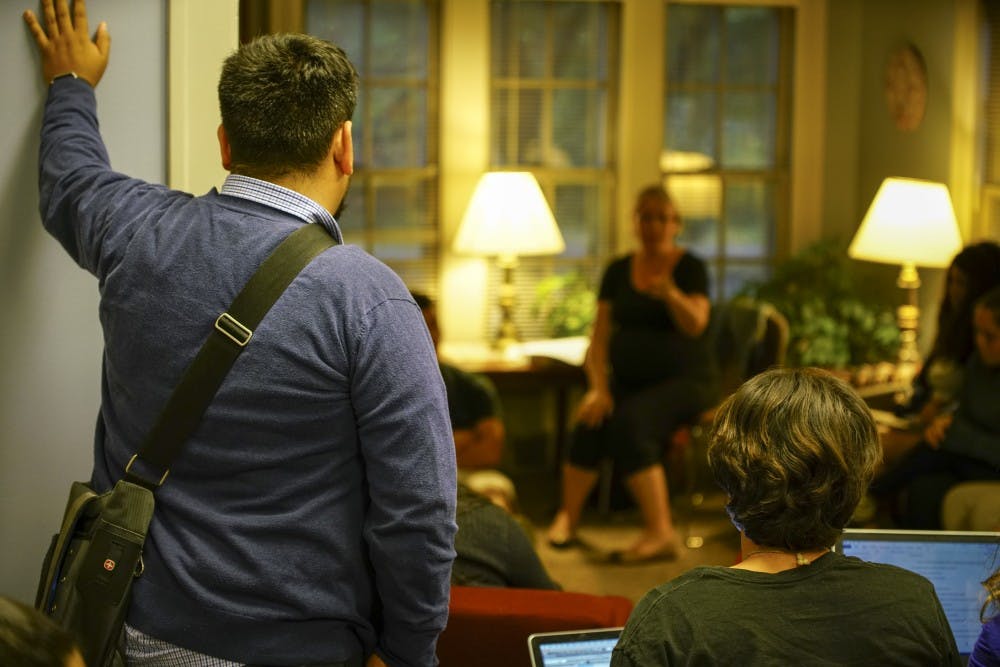Students at La Casa Latino Cultural Center laughed, hugged and talked to each other Wednesday night, but the overcrowded room quickly became silent other than the sounds of sniffles as they settled in for the Decision to End DACA Conversation.
Thousands of students across the country, including ones in that room, could potentially lose their chance to live in the United States due to the repeal of the Deferred Action for Childhood Arrivals program, which allows people that immigrated as children to legally live, work and attend school in the United States.
“I don’t know how I feel,” junior and DACA recipient Karen said. “It’s unfair. That’s all I know. It is just unfair that people are treating our future like it’s a game.”
Karen is a student affected by DACA and said she attended the discussion to get more information on the repeal. She is eligible for DACA for two more years but said that she is still scared.
She said she immigrated to the United States from Mexico when she was 3 and lives here with her mother and two younger siblings, both of whom were born in the United States.
She is an environmental policy and pre-dental double major and is enrolled in 21 credit hours with hopes of finishing school early, she said.
Immigration attorney Christine Popp explained legal matters behind DACA and what steps students affected by DACA should take in the upcoming months. Congress failed to pass any law to permanently protect children who immigrated to the United States legally, but the administrative program, DACA, protected them from deportation.
“These people have lived here most of their lives, they work and they contribute to society,” Popp said. “DACA protects people that are American in every way except for a piece of paper.”
After Popp explained the history behind DACA, students began asking legal questions about what they should do if they or people they know are affected by DACA.
Popp explained that DACA was officially repealed Sept. 5 but will be phased out in six months, and she encourages everyone affected by DACA to reapply for renewal by Oct. 5.
Popp said that although DACA ended, students should not lose hope that a law will be passed to permanently protect people affected by DACA.
“I’m not hopeless,” Popp said. “This year there is a little more momentum, and there is more bipartisan support. I’m very optimistic about this. What we need is people to advocate for this.”
Students shared ways to advocate for DACA and offered tips on how to contact government officials. After students explained ways to email and text congressmen and senators, most students pulled out their phones and sent messages right away.
“Tell them your story,” Popp said. “Tell them why it matters to you and why they should vote for something. It seems like it won’t make a difference, but it will.”
During the question portion, one student asked Popp about the politics behind ending DACA.
Popp said she could not explain why, but she believes that xenophobia and racism were large influences, although not all people against DACA are racist.
Counselors were there to let students know emotional help is available for them.
Counseling and Psychological Services therapist Enrique Silva explained that there is a fee for counseling for Dreamers, but there are waivers to apply for, and CAPS is currently not turning away anyone from DACA that may need help.
“It’s gonna be a long haul,” Silva said. “If you think that these six months are going to be hard, we’re here. Even if things change and get better, know that you can come talk to us.”
A previous version of this story used an incorrect name for the Deferred Action for Childhood Arrivals program. The IDS regrets this error.






